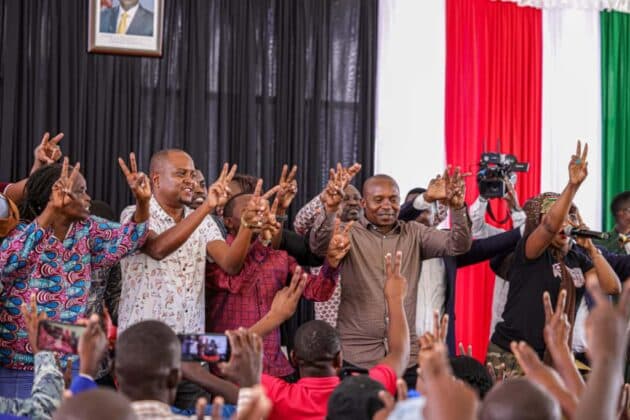We're loading the full news article for you. This includes the article content, images, author information, and related articles.
Deputy President Kithure Kindiki has committed to fostering balanced development across all Kenyan counties while actively campaigning against divisive ethnic-based politics, aiming to unite the nation for socio-economic growth.

Deputy President Kithure Kindiki has reiterated the government's commitment to ensuring equitable development across all 47 counties and ending ethnic-based politics. Speaking on Wednesday, October 1, 2025, during a development engagement with grassroots leaders and residents in Kitui County, Kindiki emphasised that the current administration aims to serve all Kenyans regardless of their regional, party, or religious affiliations.
Kindiki's remarks align with the government's broader agenda to promote national unity and accelerate socio-economic growth by ensuring no region is marginalised. This commitment has been a recurring theme in his recent addresses, including during engagements in Tana River and Taita Taveta counties in September 2025. The Deputy President has consistently dismissed what he terms "shares politics," a notion suggesting that government resources should favour regions that supported the ruling party. He argues that such an approach is outdated and divisive, asserting that every part of Kenya deserves development.
The Deputy President highlighted that the Kenyan Constitution protects all citizens against discrimination, reinforcing the government's pledge to uphold this principle in its development initiatives. The administration's focus on equitable resource distribution is intended to counter historical imbalances and foster inclusive growth, aligning with national development goals.
Key stakeholders in this discourse include political leaders, particularly those in the opposition, who have previously accused the government of practicing "shares politics." Kindiki affirmed the government's willingness to collaborate with all leaders, including former Vice President Kalonzo Musyoka, to achieve national development objectives. Citizens across all counties are primary beneficiaries of the equitable development agenda, with specific projects already underway in various regions.
The continued emphasis on equitable development and the rejection of ethnic politics could lead to greater national cohesion and balanced economic growth. Conversely, failure to deliver on these pledges could exacerbate regional disparities and fuel political tensions. Analysts suggest that these developments could influence near-term public debate and policy execution, necessitating clarity on timelines, costs, and safeguards for the outlined projects.
Specific timelines for the completion of all mentioned development projects across the 47 counties remain largely unstated. The long-term impact of the government's anti-ethnic politics campaign on voting patterns and political alignments also remains to be seen.
Observers will be keenly watching the progress of development projects in various counties, particularly those highlighted by the Deputy President. The effectiveness of the government's efforts to curb ethnic-based politics and foster national unity will also be a key area of focus as the country approaches future electoral cycles.
Discussions around Artificial Intelligence (AI) in healthcare and education, as seen in India's blueprint for inclusive progress, could offer insights for Kenya's own digital transformation agenda. Kenya is already exploring AI's potential in healthcare, particularly in telemedicine and diagnostics, to address workforce shortages and improve access to care. Similarly, the performance of Kenya's Standard Gauge Railway (SGR), which has seen record passenger numbers, underscores the importance of robust infrastructure in national development.
Keep the conversation in one place—threads here stay linked to the story and in the forums.
Sign in to start a discussion
Start a conversation about this story and keep it linked here.
Other hot threads
E-sports and Gaming Community in Kenya
Active 9 months ago
The Role of Technology in Modern Agriculture (AgriTech)
Active 9 months ago
Popular Recreational Activities Across Counties
Active 9 months ago
Investing in Youth Sports Development Programs
Active 9 months ago
Key figures and persons of interest featured in this article